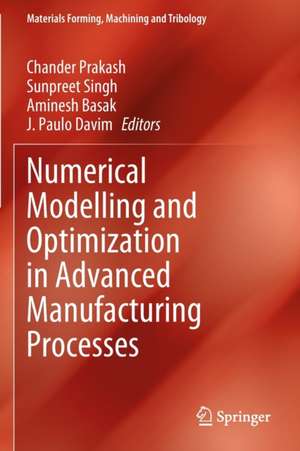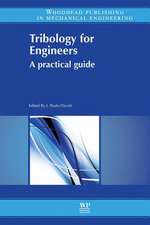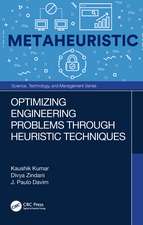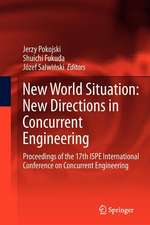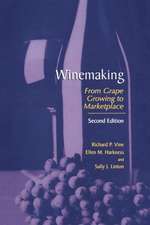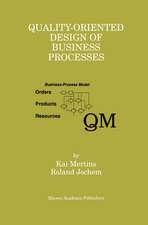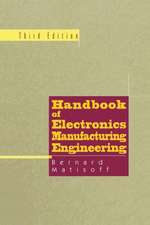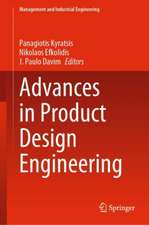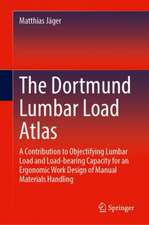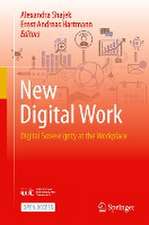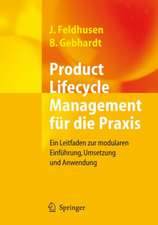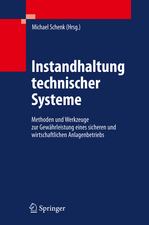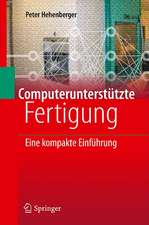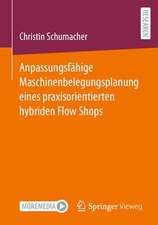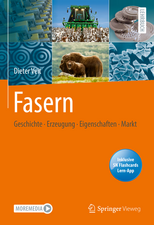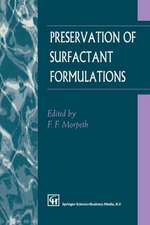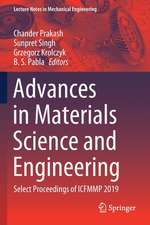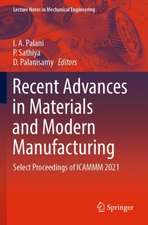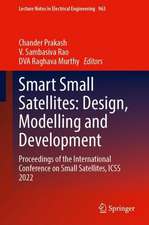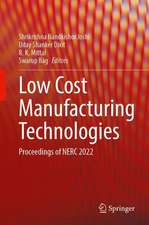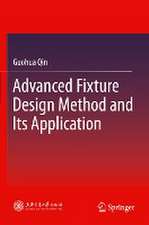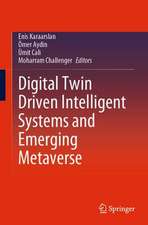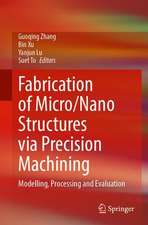Numerical Modelling and Optimization in Advanced Manufacturing Processes: Materials Forming, Machining and Tribology
Editat de Chander Prakash, Sunpreet Singh, Aminesh Basak, J. Paulo Davimen Limba Engleză Paperback – 28 mai 2023
| Toate formatele și edițiile | Preț | Express |
|---|---|---|
| Paperback (1) | 1102.38 lei 6-8 săpt. | |
| Springer International Publishing – 28 mai 2023 | 1102.38 lei 6-8 săpt. | |
| Hardback (1) | 1108.36 lei 6-8 săpt. | |
| Springer International Publishing – 27 mai 2022 | 1108.36 lei 6-8 săpt. |
Din seria Materials Forming, Machining and Tribology
- 15%
 Preț: 641.03 lei
Preț: 641.03 lei - 15%
 Preț: 641.03 lei
Preț: 641.03 lei - 15%
 Preț: 649.87 lei
Preț: 649.87 lei -
 Preț: 690.75 lei
Preț: 690.75 lei - 18%
 Preț: 1018.37 lei
Preț: 1018.37 lei - 18%
 Preț: 1010.48 lei
Preț: 1010.48 lei - 15%
 Preț: 640.06 lei
Preț: 640.06 lei - 15%
 Preț: 651.67 lei
Preț: 651.67 lei - 18%
 Preț: 953.20 lei
Preț: 953.20 lei - 15%
 Preț: 640.24 lei
Preț: 640.24 lei - 18%
 Preț: 1010.79 lei
Preț: 1010.79 lei - 18%
 Preț: 957.44 lei
Preț: 957.44 lei - 18%
 Preț: 959.19 lei
Preț: 959.19 lei - 15%
 Preț: 641.53 lei
Preț: 641.53 lei - 15%
 Preț: 641.85 lei
Preț: 641.85 lei - 15%
 Preț: 636.12 lei
Preț: 636.12 lei - 15%
 Preț: 648.56 lei
Preț: 648.56 lei - 15%
 Preț: 636.63 lei
Preț: 636.63 lei - 18%
 Preț: 948.61 lei
Preț: 948.61 lei - 18%
 Preț: 998.19 lei
Preț: 998.19 lei - 15%
 Preț: 635.96 lei
Preț: 635.96 lei - 15%
 Preț: 632.70 lei
Preț: 632.70 lei - 15%
 Preț: 594.56 lei
Preț: 594.56 lei - 15%
 Preț: 641.03 lei
Preț: 641.03 lei -
 Preț: 388.72 lei
Preț: 388.72 lei - 18%
 Preț: 891.33 lei
Preț: 891.33 lei - 15%
 Preț: 639.90 lei
Preț: 639.90 lei - 18%
 Preț: 727.80 lei
Preț: 727.80 lei - 20%
 Preț: 559.76 lei
Preț: 559.76 lei - 15%
 Preț: 645.79 lei
Preț: 645.79 lei - 15%
 Preț: 637.93 lei
Preț: 637.93 lei - 15%
 Preț: 693.39 lei
Preț: 693.39 lei - 15%
 Preț: 636.12 lei
Preț: 636.12 lei
Preț: 1102.38 lei
Preț vechi: 1344.37 lei
-18% Nou
Puncte Express: 1654
Preț estimativ în valută:
211.01€ • 229.28$ • 177.36£
211.01€ • 229.28$ • 177.36£
Carte tipărită la comandă
Livrare economică 21 aprilie-05 mai
Preluare comenzi: 021 569.72.76
Specificații
ISBN-13: 9783031043031
ISBN-10: 3031043030
Ilustrații: X, 168 p. 101 illus., 88 illus. in color.
Dimensiuni: 155 x 235 mm
Greutate: 0.26 kg
Ediția:1st ed. 2022
Editura: Springer International Publishing
Colecția Springer
Seria Materials Forming, Machining and Tribology
Locul publicării:Cham, Switzerland
ISBN-10: 3031043030
Ilustrații: X, 168 p. 101 illus., 88 illus. in color.
Dimensiuni: 155 x 235 mm
Greutate: 0.26 kg
Ediția:1st ed. 2022
Editura: Springer International Publishing
Colecția Springer
Seria Materials Forming, Machining and Tribology
Locul publicării:Cham, Switzerland
Cuprins
Chapter 1. Parametric Appraisal of Plastic Injection Moulding for Low Density Polyethylene (LDPE): A Novel Taguchi based Honey Badger Algorithm and Capuchin Search Algorithm (Siddharth Jeet).- Chapter 2. A Comparison of ferrofluid flow models for a curved rough porous circular squeeze film considering slip velocity and various shapes (Jimit R. Patel).- Chapter 3. Simulation and optimization study on polishing of spherical steel by non-Newtonian fluids (Duc-Nam Nguyen).- Chapter 4. 3D Modeling and Analysis of Femur Bone during Jogging and Stumbling Condition (Imran Ahemad Khan).- Chapter 5. On Parametric Optimization of TSE for PVDF-Graphene-MnZnO Composite Based Filament Fabrication for 3D /4D Printing Applications (Vinay Kumar).- Chapter 6. Multi-factor Optimization for Joining of Polylactic acid-Hydroxyapatite-Chitosan based Scaffolds by Rapid Joining Process (N. Ranjan).- Chapter 7. Analysis of Dimensional Accuracy of Fused Filament Fabrication Parts Using Genetic Algorithm and Taguchi Analysis (J.S. Chohan).- Chapter 8. Introduction to Optimization in Manufacturing Operations (Debojyoti Sarkar).- Chapter 9. Potential Application of CEM43℃ and Arrhenius Model in Neurosurgical Bone Grinding (Atul Babbar).- Chapter 10. An effective selection of laser cutter used in Stent manufacturing through Fuzzy TOPSIS.
Notă biografică
Dr. Chander Prakash is Associate Professor in the School of Mechanical Engineering, Lovely Professional University, Jalandhar, India. He received his Ph.D. in mechanical engineering from Punjab University, Chandigarh, India. His area of research is biomaterials, rapid prototyping and 3D printing, advanced manufacturing, modeling, simulation, and optimization. He has teaching experience and research expertise in titanium- and magnesium-based implants.
Dr. Sunpreet Singh is Researcher in NUS Nanoscience & Nanotechnology Initiative (NUSNNI). Received his Ph.D. in mechanical engineering from Guru Nanak Dev Engineering College, Ludhiana, India. His area of research is additive manufacturing and application of 3D printing for development of new biomaterials for clinical applications.
Dr. Aminesh Basak is working as Dual Beam Engineer in the Division of Research and Innovation, The University of Adelaide, Australia. He received his Ph.D. in materialsscience and manufacturing. He is also FIB/TEM Specialist at Australian Institute for Machine Learning. His research areas are precision machining, development of metal matrix composites, tribological behaviors of engineering materials, and optimization of the manufacturing processes.
Prof. J. Paulo Davim received his Ph.D. degree in mechanical engineering in 1997, M.Sc. degree in mechanical engineering (materials and manufacturing processes) in 1991, mechanical engineering degree (5 years) in 1986, from the University of Porto (FEUP), the aggregate title (full habilitation) from the University of Coimbra in 2005, and the D.Sc. (higher doctorate) from London Metropolitan University in 2013. He is Senior Chartered Engineer in the Portuguese Institution of Engineers with an MBA and specialist titles in engineering and industrial management as well as in metrology. He is also Eur Ing in FEANI, Brussels, and Fellow (FIET) of IET London. Currently, he is Professor in theDepartment of Mechanical Engineering of the University of Aveiro, Portugal. He is also distinguished as honorary professor in several universities/colleges. He has more than 30 years of teaching and research experience in manufacturing, materials, mechanical, and industrial engineering, with special emphasis in machining and tribology. He has also interest in management, engineering education, and higher education for sustainability.
Dr. Sunpreet Singh is Researcher in NUS Nanoscience & Nanotechnology Initiative (NUSNNI). Received his Ph.D. in mechanical engineering from Guru Nanak Dev Engineering College, Ludhiana, India. His area of research is additive manufacturing and application of 3D printing for development of new biomaterials for clinical applications.
Dr. Aminesh Basak is working as Dual Beam Engineer in the Division of Research and Innovation, The University of Adelaide, Australia. He received his Ph.D. in materialsscience and manufacturing. He is also FIB/TEM Specialist at Australian Institute for Machine Learning. His research areas are precision machining, development of metal matrix composites, tribological behaviors of engineering materials, and optimization of the manufacturing processes.
Prof. J. Paulo Davim received his Ph.D. degree in mechanical engineering in 1997, M.Sc. degree in mechanical engineering (materials and manufacturing processes) in 1991, mechanical engineering degree (5 years) in 1986, from the University of Porto (FEUP), the aggregate title (full habilitation) from the University of Coimbra in 2005, and the D.Sc. (higher doctorate) from London Metropolitan University in 2013. He is Senior Chartered Engineer in the Portuguese Institution of Engineers with an MBA and specialist titles in engineering and industrial management as well as in metrology. He is also Eur Ing in FEANI, Brussels, and Fellow (FIET) of IET London. Currently, he is Professor in theDepartment of Mechanical Engineering of the University of Aveiro, Portugal. He is also distinguished as honorary professor in several universities/colleges. He has more than 30 years of teaching and research experience in manufacturing, materials, mechanical, and industrial engineering, with special emphasis in machining and tribology. He has also interest in management, engineering education, and higher education for sustainability.
Textul de pe ultima copertă
This book presents different numerical modeling and nature-inspired optimization methods in advanced manufacturing processes for understanding the process characteristics. Particular emphasis is devoted to applications in non-conventional machining, nano-finishing, precision casting, porous biofabrication, three-dimensional printing, and micro-/nanoscale modeling. The book includes practical implications of empirical, analytical, and numerical models for predicting the vital output responses. Especial attention is given to finite element methods (FEMs) for understanding the design of novel highly complex engineering products, their performances, and behaviors under simulated processing conditions.
Caracteristici
Lists nature-inspired optimization methods in manufacturing process Provides a special chapter on nano-finishing methods Emphasizes the practical implications of numerical modelling
